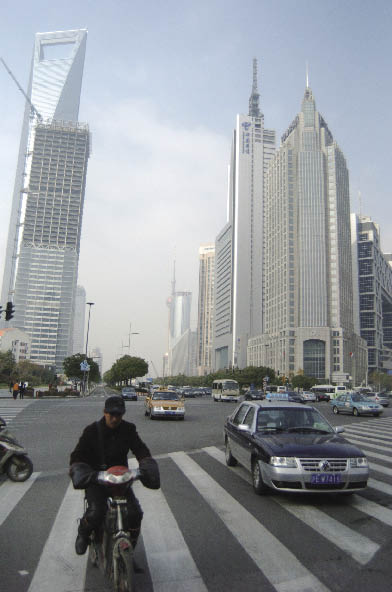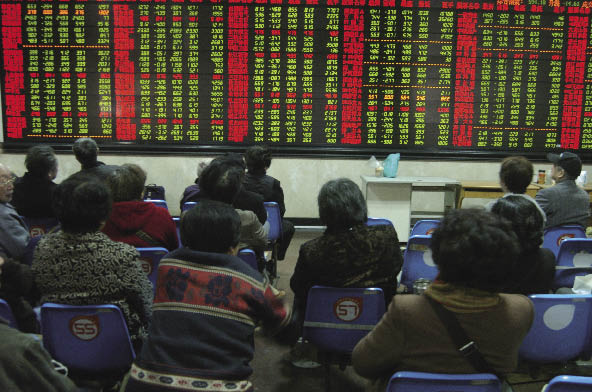| Shanghai Prepares to Tango
with the Financial Tornado
By staff reporter LIU QIONG
 |
|
The Lujiazui Finance and Trade Zone in Shanghai. |
THERE is an old Chinese saying, "A man's greatest woe is entering the wrong trade; a woman's is marrying the wrong man." In that case, in an era where both men and women, married and single, need to work, women must be cautious on both counts.
Li Sha for one thinks she may have made a bad career decision. Having long envied the large salaries of friends working in finance, Li resigned from her government post in early 2008 and took a job at Industrial Securities. Although China's stock market was already on the slide, Li was confident of an imminent reversal. Since then, the US financial crisis has erupted, spread and gone global.
Chinese Finance Holds Its Own
Talking to researcher Guo Linkai, a former classmate and colleague at Industrial Securities, revived Li's spirits. "The financial disaster triggered by the US sub-prime crisis has not directly affected China's financial sector," he assured her. "China's securities companies have low overseas investment, and the factors that wrecked foreign investment banks do not apply to China."
The Industrial Securities headquarters is in Lujiazui Finance and Trade Zone in Shanghai's dynamic Pudong New Area. It is a conflux of international stock exchanges and banks that include Bank of China, HSBC and Citibank. "The crisis has had limited impact on commercial banks, whose main business is traditional savings and lending," Guo said. His opinion is corroborated by the Industrial Bank's 2008 third quarter report, which revealed that at September 30 last year its revenue had risen 39.32 percent and its net profits 56.49 percent compared with the same period in 2007.
Another reason why China's commercial banks remain stable is their low percentage of foreign currency assets, according to Wang Songqi, vice-president of the Institute of Finance and Banking of the Chinese Academy of Social Sciences. These banks' staple income is generated by the disparity between deposit and loan interest rates which remained high in 2008. Commercial bank net profits growth, on average, exceeded 60 percent during the first half of the year.
 |
|
The packed Hualin Stock Exchange. |
As regards the insurance industry, domestic insurers have few overseas investments, and therefore are little affected by the global crisis. As the market share of a few dozen foreign-funded insurance companies on the Chinese market is less than 10 percent, any tremors they might feel from their parent companies abroad will not overtly affect China's insurance market.
| 